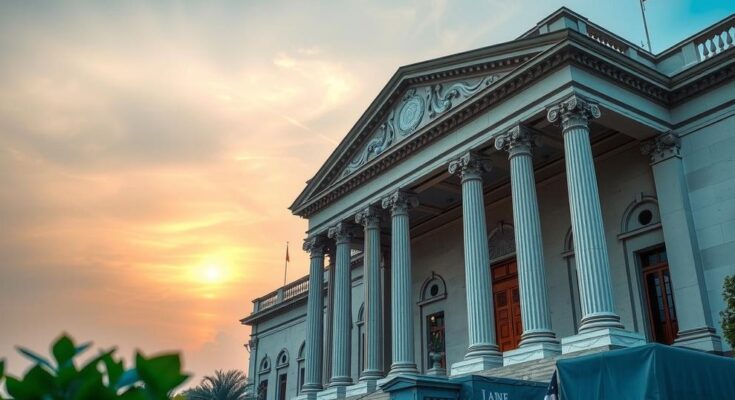Daniel Chapo was sworn in as Mozambique’s president amidst unrest following disputed elections. Claims of electoral fraud by opposition candidate Venancio Mondlane have led to significant protests and over 300 deaths. Chapo pledged to enhance national unity and democracy while facing challenges from Mondlane, who threatens ongoing demonstrations. International observers cited irregularities in the elections, further complicating Mozambique’s political stability.
Mozambique’s newly inaugurated president, Daniel Chapo, took his oath of office on January 15 in Maputo amidst heightened tensions following violent protests over disputed election results. Chapo, representing the Frelimo party, which has maintained governance since 1975, faces accusations of election rigging from opposition candidate Venancio Mondlane, leading to more than 300 fatalities according to an NGO report.
Upon assuming office, Chapo pledged commitment to national unity, human rights, and democratic values, emphasizing the need for stability and development in Mozambique. Conversely, Mondlane vowed to organize daily demonstrations to challenge Chapo’s administration, maintaining that the elections held on October 9 were manipulated to favor the incumbent party.
International observers have cited several irregularities in the elections. The European Union labeled the alterations in election outcomes as unjustifiable. In preparation for the inauguration, security forces intensified measures in Maputo, establishing extensive roadblocks while reports indicated at least six additional deaths related to the unrest in provinces near the capital.
The unrest following the elections has led to a considerable number of casualties, with accusations directed towards security forces for employing excessive measures against protestors. Chapo is poised to announce his cabinet shortly and may consider compromises to the opposition in a push for dialogue, despite Mondlane’s exclusion from previous discussions.
Official results claim Chapo received 65% of the vote, while Mondlane contests this, asserting he achieved 53%. The Frelimo party substantially dominates the national assembly with 171 out of 250 seats, positioning Chapo’s government with considerable control. However, Mondlane’s readiness for negotiation suggests a potential opening for political dialogue despite the prevailing tensions.
In Mozambique, the political landscape remains unstable following recent elections, which saw President Daniel Chapo sworn in amid claims of electoral fraud. The opposition, led by Venancio Mondlane, has mobilized substantial unrest against what they allege is a corrupted electoral process. Moreover, the history of Frelimo’s prolonged governance adds complexity to the current political dynamics, emphasizing the need for national reconciliation and dialogue.
The inauguration of Daniel Chapo marks a significant moment in Mozambique’s ongoing political crisis. Despite his assertions of promoting stability and national unity, the overwhelming opposition claims and threats of continued protests pose challenges to his administration. The need for dialogue and potential compromises with opposition figures like Mondlane could play a crucial role in pacifying the nation’s unrest and fostering a more robust democratic framework.
Original Source: www.lemonde.fr




